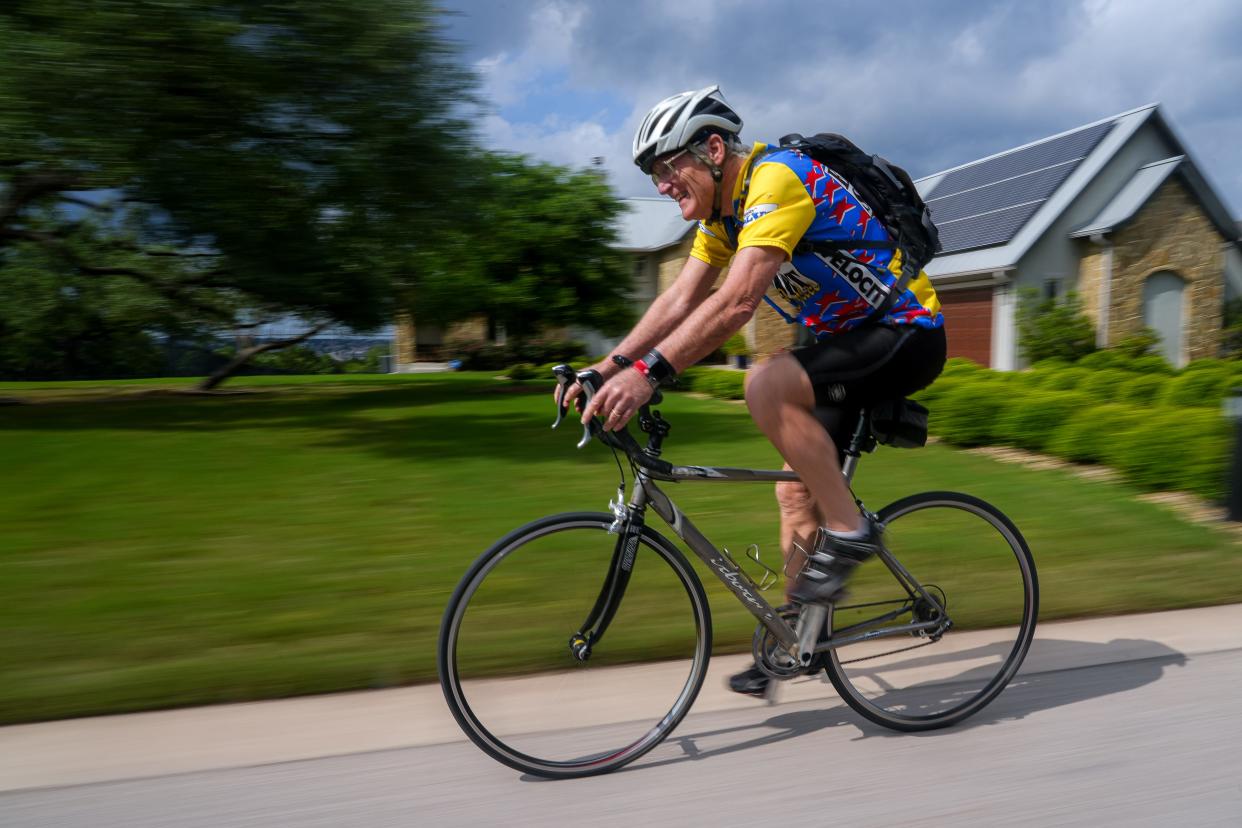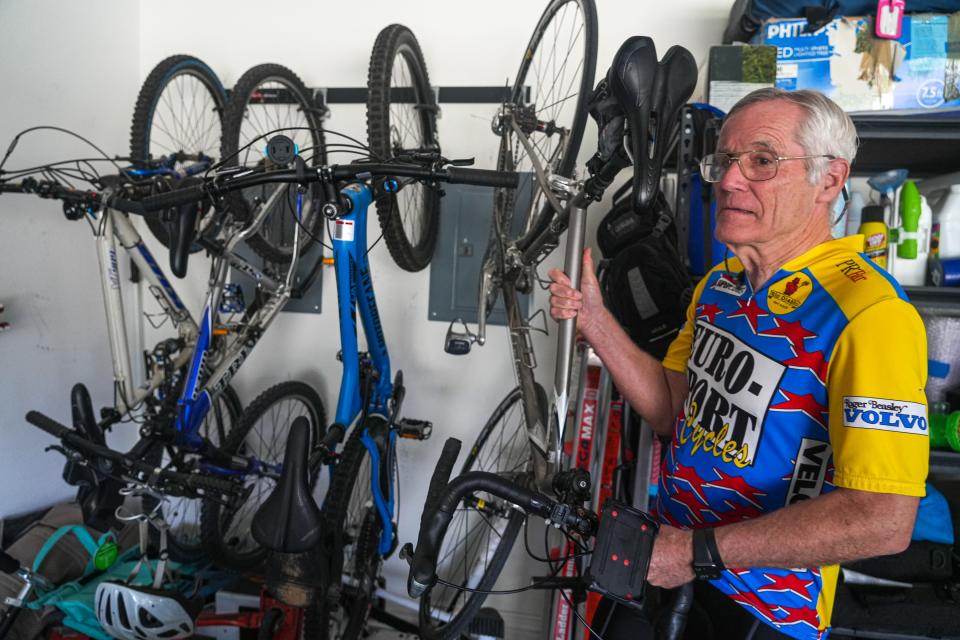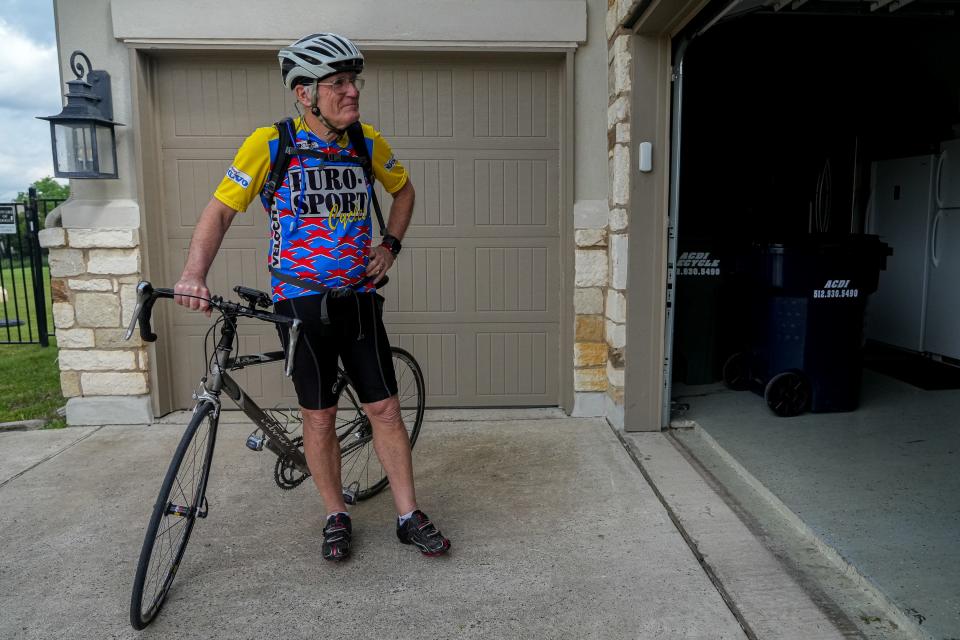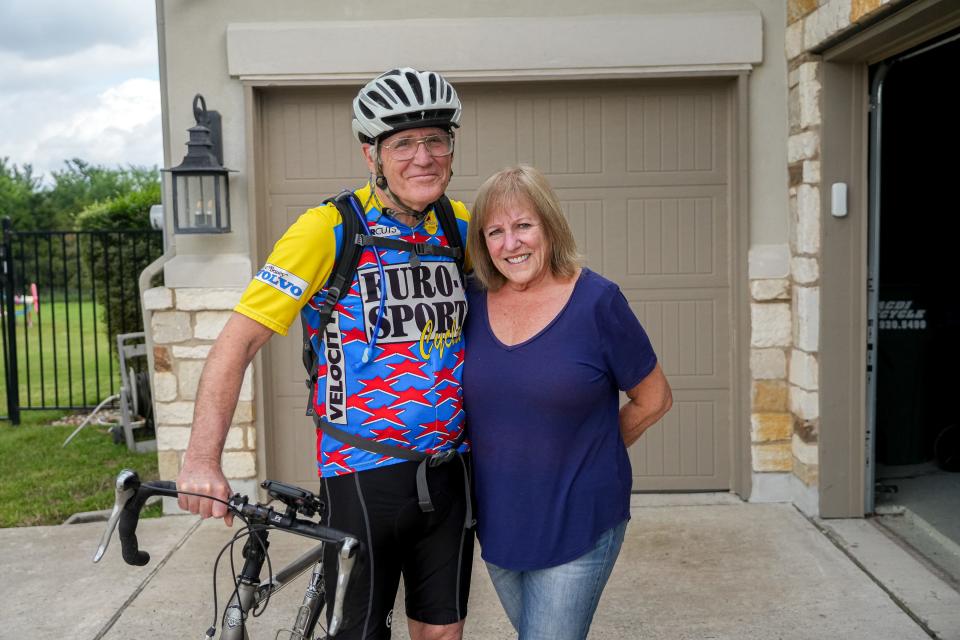Leander athlete survives 'widowmaker' heart attack to return to what he loves: riding, flying

Frank Brewer was the picture of fitness. At 71-years-old, the retired Southwest Airlines pilot had been a competitive skier for 50 years and had been a cyclist since he was a child. Last fall, he had been cycling 2 1/2 to three hours a day, five to seven days a week, to get ready for ski season.
On Oct. 30, toward the end of his ride from his home in Leander to Georgetown and back, he noticed it was getting difficult to climb those hills. Back home, he felt exhausted and his arms felt very tense.
Brewer took a shower and was going to try to relax his arms and maybe take a nap. His wife Stephanie, noticed that he was holding his arms up. She called a friend who was a nurse and was told to get him to the emergency room. He was probably dehydrated.
Nobody thought that Frank Brewer, the athlete, was having a heart attack, and certainly not the kind nicknamed the "widowmaker," because of its mortality rates. It has about a 12% survival rate if experienced outside a hospital, according to the American Heart Association.
Getting care quickly: 'Lucky to survive': St. David's helps prevent Austin man's heart attack story from being a tragedy

How is the "widowmaker" repaired?
When Brewer got the emergency room, he was treated with fluids for dehydration, but something made his wife ask the doctor to do an electrocardiogram (EKG). The doctor didn't think he needed one, and left, but then thought about it, and stepped back into Frank Brewer's room to go ahead and do an EKG, Stephanie Brewer recalled.
Frank Brewer's EKG revealed he was having a heart attack.
"In the old days, if you developed a blockage in the heart arteries, the outcome was not that good," said Dr. Joshua McKay, a cardiologist, who later treated Brewer at the Heart Hospital of Austin at St. David's Round Rock Medical Center.
Frank Brewer was transferred by ambulance to Heart Hospital of Austin's Round Rock location, where inside the catheterization lab they determined Brewer had at least an 80% blockage in his early proximal left anterior descending coronary artery. He also had two more blockages, one that was 20% and another one that was 40%.
For the 80% blockage, they were able to use the catheter to place a stent to restore blood flow. Brewer was under conscious sedation during the procedure, meaning he was awake but in no pain.
"More amazing about all this, in 30 minutes after the operation was over ... I felt like the heart attack had never happened," Brewer said. "I was sore, not tired. I felt like I could go for another three-hour bike ride."
McKay said that often patients feel better right away. The hard part is convincing them to take it easy, do cardiac rehabilitation and change their habits to improve their heart health.
Know the signs of stroke: AHORA: An Austinite's mission to create a Spanish memory aid for stroke detection
Why didn't Frank Brewer have classic heart attack symptoms?
"Not everybody is the same," McKay said. "There are classic symptoms, but there's a whole list of people with atypical symptoms."
That's why it's important to get checked out if you know something feels wrong, McKay said. In Brewer's case, his symptoms were arm heaviness and exhaustion.
More typical symptoms of a heart attack are:
Chest pain or heaviness or squeezing
Shortness of breath
Light-headedness
Nausea or vomiting
Fatigue
Pain in the jaw, neck, back, arm or shoulder

What put Frank Brewer at risk for a heart attack?
In Brewer's case, he had been told for years by his doctor that he had high cholesterol and needed to get those numbers down, "which I chose to ignore because I was dumb," Brewer said.
He attributes it to years of eating fast food in the airport between flights.
High blood pressure
Diabetes
Obesity
Family history
Smoking
Drinking more than one drink a day for women and two drinks a day for men
A lack of physical activity
Eating a diet high in saturated fats, trans fats, cholesterol and salt.
How has Frank Brewer changed his life?
Brewer changed his eating habits "tremendously," he said, and began taking two statin medications to reduce his high cholesterol. He now watches his saturated fats, salt and added sugar. His cholesterol has gone from 230 to 96. "It's an amazing thing," he said.
Heart healthy diets: Put down the coconut oil, red wine in new heart health dietary guidelines
Brewer also began out-patient cardiac rehab in December for 36 visits, typically three times a week for three months. He started slowly at first, but by the 10th visit, he was allowed to get his heart rate up during exercise.
"I enjoyed cardiac rehab," Brewer said. "It gave me the confidence. I could be an athlete. I could exercise again."
He said his goals during recovery were to be around for his family, be able to ski race again and to continue flying. Those kept him motivated.
Pat Paprocki, a cardiac care rehab nurse, said they tailored Brewer's plan to fit him and the athlete he is. They worked on his diet, and on his exercise level. Because Brewer was more fit, he was able to start at a higher level of exercise than other cardiac rehab patients, Paprocki said, but still at a lower level than he had been doing before the heart attack.
Cardiac rehab works on both the physical aspects of recovery as well as the mental health aspect, Paprocki said. "We know it gives you confidence. You can go, 'Look, I can do these things,'" Paprocki said.

What does life after a heart attack look like?
Brewer is now back to skiing and riding his bike. He has not been medically cleared yet to fly solo as part of the Falcon Flight Formation Team, but he is able to fly with another pilot in the cockpit. They know him by his call sign: Bogey.
Brewer now is an advocate for heart health. He's encouraged friends to get a HeartSaver CT scan, which measures the calcium in the heart arteries to predict future heart attacks.
And he lets people know, while fitness is important, the food that goes into the body is even more important, he said.
"Don't confuse being fit with having a healthy heart," Brewer said. "They are not the same."
Inside a HeartSaver CT scan: Will I have a heart attack? CT scan looks at calcium in the arteries to assess your risk.
This article originally appeared on Austin American-Statesman: Leander athlete, pilot Frank Brewer survives widowmaker heart attack

